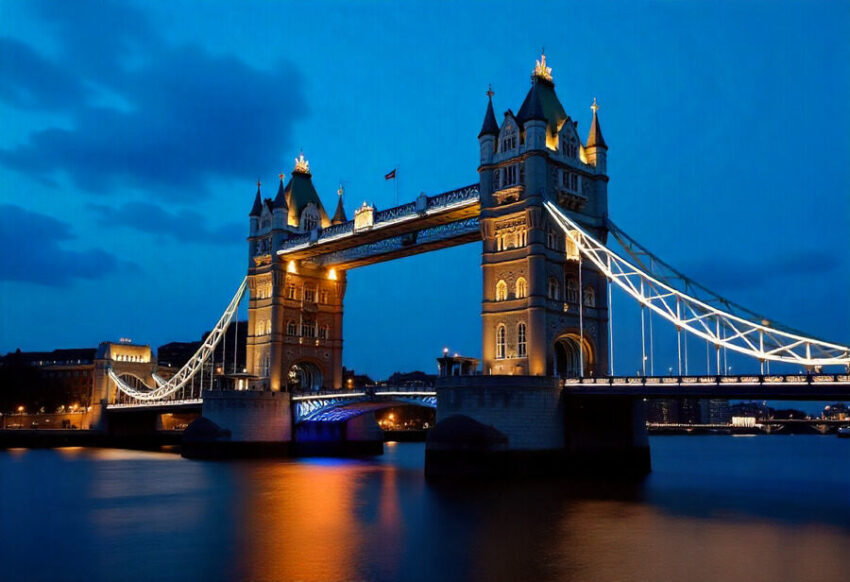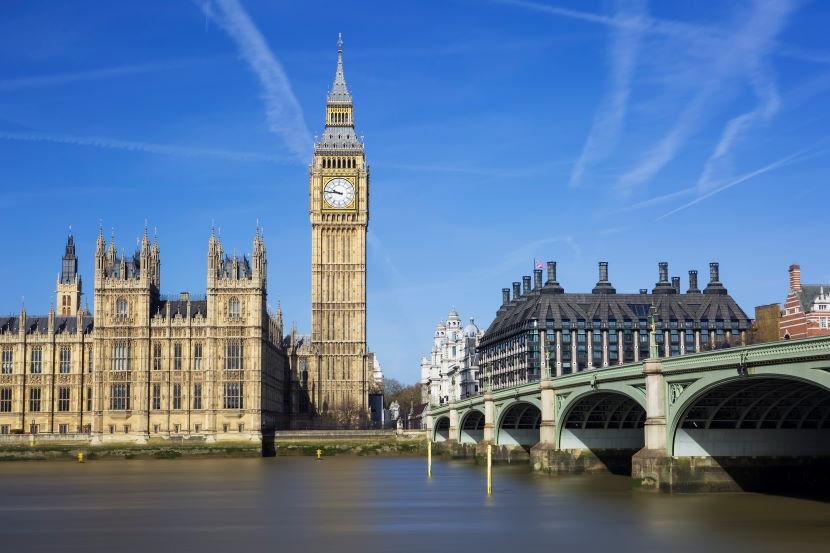Published on
October 20, 2025

US has issued a new travel advisory, with the UK joining the list of countries like Turks and Caicos, Denmark, Antarctica, Brazil, France, and others, as travelers are urged to exercise increased caution due to rising security concerns. These countries are facing heightened risks from terrorism, crime, civil unrest, and environmental hazards, prompting the U.S. State Department to update its guidance. The advisory emphasizes the importance of being vigilant, staying informed, and adhering to new entry requirements as the global travel landscape faces increasing safety challenges.
The U.S. government has issued new travel advisories for several countries, urging American citizens to exercise increased caution due to rising security risks, including terrorism threats, civil unrest, crime, and new entry requirements. As global safety concerns grow, destinations such as the United Kingdom, Turks and Caicos, Denmark, Antarctica, Brazil, and France have been added to the list of countries under heightened scrutiny. The U.S. State Department has warned travelers about potential threats and advised them to be aware of local conditions, changes in entry protocols, and the increasing possibility of violent incidents in these regions. Here is a breakdown of each country, detailing the specific threats and travel requirements.
United Kingdom: Terrorism and Travel Restrictions
The United Kingdom has been placed under a travel advisory level advising U.S. citizens to “exercise increased caution” due to ongoing terrorist activity. While the UK remains one of the world’s most visited countries, recent intelligence suggests that terrorist groups continue plotting possible attacks. These groups may target tourist spots, transportation hubs, markets, shopping malls, local government facilities, hotels, clubs, and places of worship, among other public areas.
In addition to the terrorism threat, there are new entry requirements for U.S. travelers. The UK now mandates that all U.S. citizens traveling for tourism, family visits, business meetings, or short-term studies (less than six months) must obtain an Electronic Travel Authorization (ETA). Travelers must also be prepared to comply with passport regulations, which include ensuring their passport is valid for the duration of their stay.
Given the security situation, U.S. citizens are advised to be vigilant, monitor local media, and stay in touch with local authorities. Furthermore, travelers are encouraged to enroll in the Smart Traveler Enrollment Program (STEP) for real-time updates and assistance in emergencies.
Turks and Caicos Islands: Crime Risks
The Turks and Caicos Islands, a popular Caribbean destination, has recently been added to the U.S. travel advisory list due to an increase in criminal activity. Travelers are advised to exercise caution, particularly in Providenciales, where most crimes are reported. The local police have limited resources to investigate and address criminal incidents, which can range from theft to violent crime.
One of the most severe concerns in the region is the illegal possession of firearms and ammunition. Travelers should be aware that bringing firearms or even a single bullet into the country can result in arrest, lengthy detention, and heavy fines. U.S. citizens have been detained for carrying bullets in their luggage, and in some cases, individuals were unable to depart for weeks.
To ensure safety, the U.S. State Department recommends travelers to avoid walking alone, especially at night, and to be cautious when interacting with strangers. Enrolling in STEP and having a contingency plan for emergency situations are highly advised for anyone visiting the Turks and Caicos Islands.
Denmark: Terrorism Threats
Denmark, a tranquil Scandinavian country, has also been flagged under the U.S. travel advisory due to an increased risk of terrorism. The advisory encourages travelers to be cautious when visiting tourist spots, transportation hubs, shopping malls, and public venues. The Danish government has been on high alert as terrorist groups continue to plan attacks with little or no warning. Key locations, including major airports, cultural events, and places of worship, are considered potential targets.
Visitors to Denmark are advised to stay informed by following local media outlets and obeying instructions from local authorities. Additionally, U.S. citizens are urged to enroll in STEP to receive up-to-date alerts in case of emergencies. As with other countries on the advisory list, travelers should always prepare a contingency plan and review local security reports to understand the risks in their destination.
Antarctica: Environmental Hazards and Limited Emergency Services
Although it is one of the most remote and uninhabited regions on Earth, Antarctica has also received an advisory. The U.S. State Department cautions travelers about environmental hazards posed by unpredictable weather conditions. Due to the extreme climate, travelers face significant risks, such as sudden storms, freezing temperatures, and ice-related accidents. Additionally, there are limited emergency services available, making it crucial for visitors to have proper insurance and a well-prepared plan for any eventualities.
There are no U.S. consular services available in Antarctica, and travelers are urged to be fully self-sufficient during their visit. The State Department also recommends booking travel through professional organizations, such as those affiliated with the International Association of Antarctica Tour Operators (IAATO). While no vaccinations are required, travelers should check health and safety guidelines before heading to this challenging destination.
Brazil: Crime and Kidnapping Risks
Brazil, known for its vibrant culture and natural beauty, has been added to the U.S. travel advisory due to high levels of crime and kidnapping risks. The country’s large urban areas, particularly around the borders with Bolivia, Colombia, and other South American nations, have seen a rise in violent crime, including armed robberies, carjackings, and even kidnappings. Gang activity and organized crime are prevalent, especially in regions linked to the recreational drug trade.
The U.S. Department of State has specifically advised against traveling to informal housing developments (known as favelas) and certain areas around Brasília, especially during the night. These areas have been identified as high-risk zones for robbery, assault, and other violent crimes. Travelers are also advised not to resist any robbery attempts and to avoid displaying valuables in public.
Brazil’s complex security situation means that U.S. citizens should exercise extreme caution when traveling, especially in areas not recommended by local authorities. Keeping a communication plan with family or friends is essential for anyone traveling through Brazil’s more dangerous regions.
France: Terrorism and Unrest
France, a popular European destination, continues to face significant security challenges, including terrorism threats and ongoing civil unrest. Terrorist groups remain active in planning potential attacks on French soil, particularly targeting tourist hotspots, transportation hubs, and cultural events. The U.S. travel advisory urges U.S. citizens to exercise increased caution and remain alert, especially in crowded locations like airports, subways, and tourist attractions.
In addition to the terrorism threat, France frequently experiences peaceful protests and strikes, particularly in Paris and other major cities. While most of these demonstrations remain nonviolent, some have escalated into clashes with the police, resulting in property damage and disruptions to transportation services. Travelers are advised to avoid participating in protests and to stay away from areas of significant police activity.
As in other countries on the advisory list, U.S. citizens are encouraged to monitor local media, follow the guidance of local authorities, and enroll in STEP for emergency notifications.
The U.S. government’s updated travel advisory underscores the growing security risks in popular tourist destinations worldwide. As terrorism, civil unrest, and crime continue to pose significant threats to travelers, it is essential for U.S. citizens to remain vigilant and well-prepared. Countries like the United Kingdom, Turks and Caicos, Denmark, Antarctica, Brazil, and France are now subject to heightened scrutiny, with U.S. travelers urged to follow safety protocols, including enrolling in STEP, staying informed about local conditions, and adhering to entry requirements.
In addition to personal safety precautions, understanding each country’s specific entry regulations, such as the ETA for the UK, is crucial. Travel insurance, including evacuation assistance and medical coverage, is strongly recommended for all international travel, especially when visiting higher-risk destinations.
The US has issued a new travel advisory, with the UK joining countries like Turks and Caicos, Denmark, Antarctica, Brazil, and France, due to rising risks from terrorism, crime, civil unrest, and environmental hazards. Travelers are urged to exercise increased caution and stay informed about local conditions and entry requirements.
As the global travel landscape continues to shift, it is important to stay updated on the latest advisories and prepare for unforeseen circumstances. Whether visiting bustling cities, remote regions, or tropical paradises, the safety and well-being of travelers should remain the top priority.









